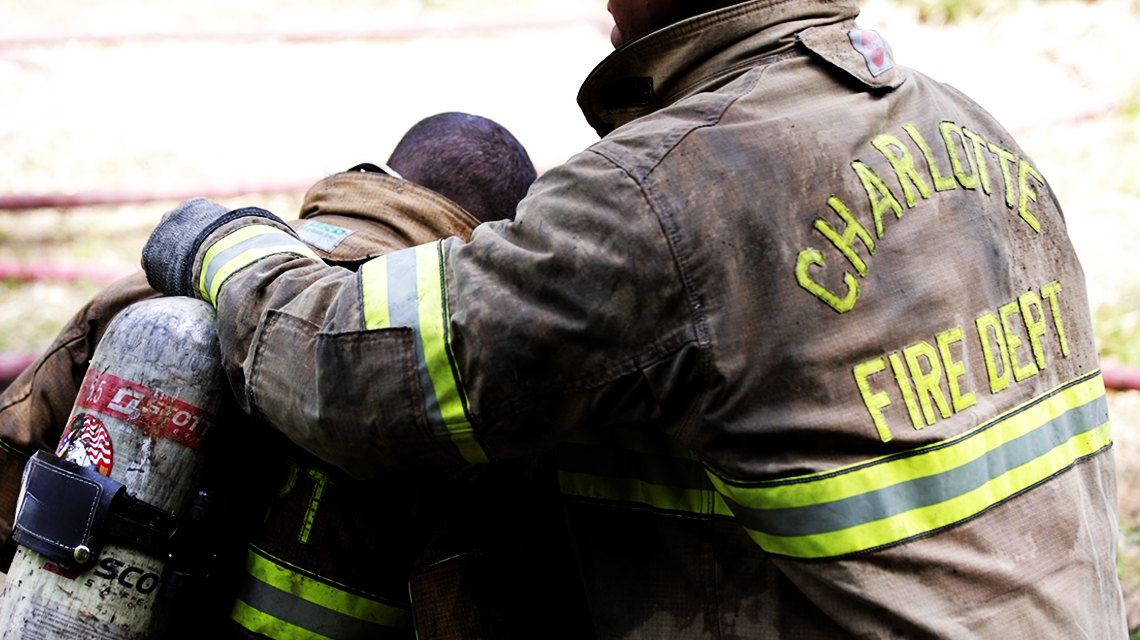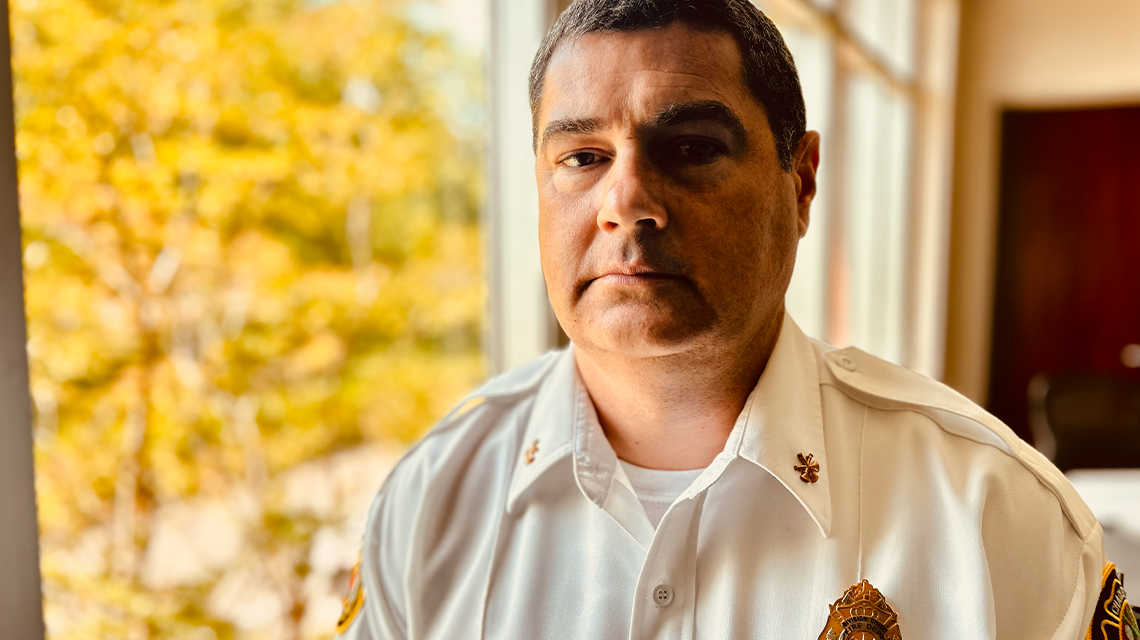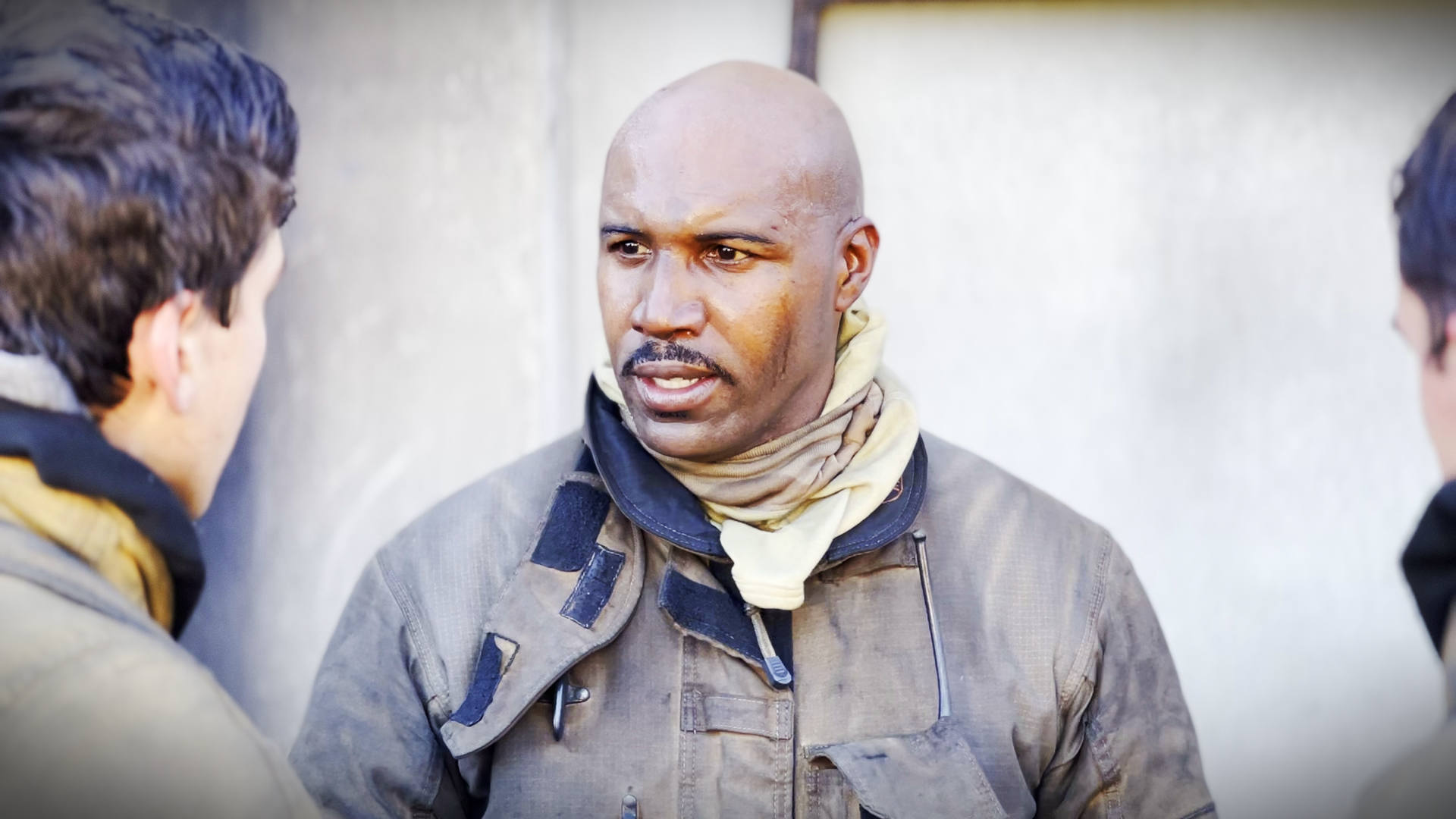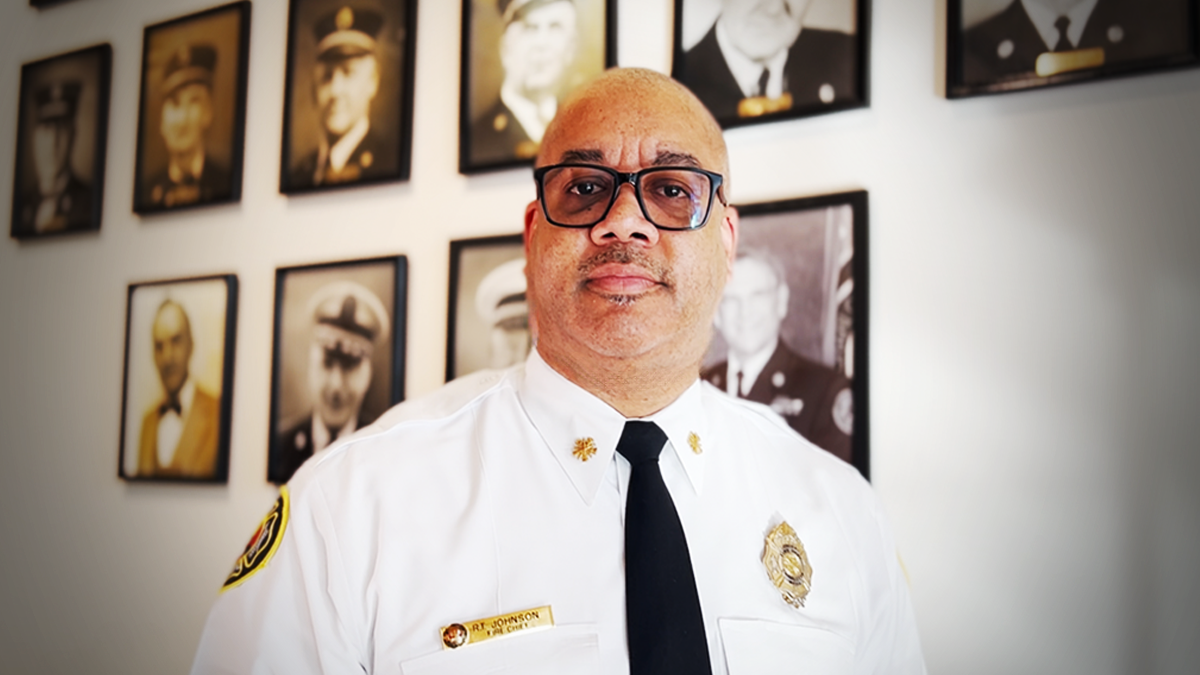Breaking the Mental Health Stigma, One Conversation at a Time
Published on June 18, 2025

Support isn’t just what we give the public. It’s what we give each other. Charlotte Fire is working to make mental wellness part of the everyday firehouse culture.
At Charlotte Fire, the job doesn’t stop with putting out fires. Behind every emergency response is a firefighter who may carry the unseen weight of trauma, fatigue, or burnout. As Charlotte Fire participates in Safety Stand Down 2025, the message is clear: it’s time to break the stigma and RESET our approach to behavioral health.
This year’s national theme, “Break the Stigma: Behavioral Health RESET,” urges departments across the country to pause non-emergency activities for one week and focus on five daily pillars: Recognize, Educate, Strategies, Empower, and Training. Charlotte Fire is embracing that mission with open conversations, peer support, and leadership-led action.
"Although firefighters are trained to go and serve the public and do all kinds of different things, we also need to be able to take care of ourselves," said Division Chief Jason Perdue, who oversees Charlotte Fire’s mental wellness program. "We see a lot of things that most people would never see in their lifetime. Sometimes we see them over and over again. Some traumatic events we can absorb, some of that trauma. Our firefighters can become overwhelmed mentally, especially if they don't have appropriate coping mechanisms or don't know how to seek help."

Division Chief Jason Perdue leads Charlotte Fire’s behavioral health efforts and says mental wellness must be part of how firefighters train, work, and support each other.
Perdue said that Charlotte Fire is shifting away from the outdated "Superman mentality" and embracing a healthier message: it's OK not to be OK. He emphasized how peer support plays a pivotal role in breaking that silence.
"Peer support is actually where you and I can sit down and talk and understand each other and what each other has been through," he said. "We’ve done some different things... like 'Struggle Well'–specifically, a class where you learn how to take advantage of the trauma in your life and grow from it."
Charlotte Fire’s peer support team is central to this effort. Captain Andre Fuller, a respected leader in the program, said firefighters sometimes focus so much on saving others, they forget to look inward.
"We do so much for the public that sometimes we forget about ourselves," Fuller said. "We have a stigma of being this super being that comes in and saves the day, when we forget to handle the things on our end. And sometimes we get caught up in the whole saving everyone else that we forget to save ourselves."

Captain Andre Fuller is part of Charlotte Fire’s Peer Support Team. By sharing his own story, he helps others find the courage to talk about theirs.
Fuller said peer support works best when firefighters can relate to one another.
"When I'm approaching someone, I'm vocal about my vulnerability–the times when I came up short and I needed help," he said. "Letting them know it's OK to ask for help usually opens that door. I'm not pushing it on them, I'm just letting them know I'm here if they need to talk."

Behind every response is a firefighter carrying more than gear. Through peer support and open dialogue, Charlotte Fire is helping its members stay strong: physically and mentally.
Throughout the week of June 15–21, Charlotte Fire is aligning with the national RESET framework:
-
Strategies: Firefighters are learning to identify their stress triggers and apply healthy coping methods: exercise, nature, quality family time, music, or simply taking a break.
Charlotte Fire is also putting focus on lifestyle choices that promote balance. The organization is encouraging hydration, proper sleep, and healthier eating–all factors tied to energy levels and long-term mental wellness.
"It’s about resetting how we view behavioral health," Perdue said. "We’re not checking boxes–we’re building a culture where wellness is embedded in everything we do."
That culture starts at the top.
"We are committed to supporting the whole firefighter–from their first day on the job to long after they leave the firehouse," said Charlotte Fire Chief Reginald Johnson. "Mental wellness is a priority, and we will continue building a culture where asking for help is seen as strength, not weakness."

Fire Chief Reginald Johnson championed Charlotte Fire’s mental wellness initiative from the start, making it a priority to break the stigma and support firefighters both on and off the job.
Fuller says the conversations need to be part of the everyday rhythm at the station.
"We train as a team, we go on calls as a team, we eat as a team. In those fire stations we should be able to discuss things as a team and rely on each other to talk through situations–to let each other know that, 'Hey, something is going on with me.'"
If you or someone you know is experiencing a mental health crisis, call or text 988 or visit 988lifeline.org. Help is free, confidential, and available 24/7.
Charlotte Fire is known for saving lives. Now, it’s working just as hard to save the lives of its own.